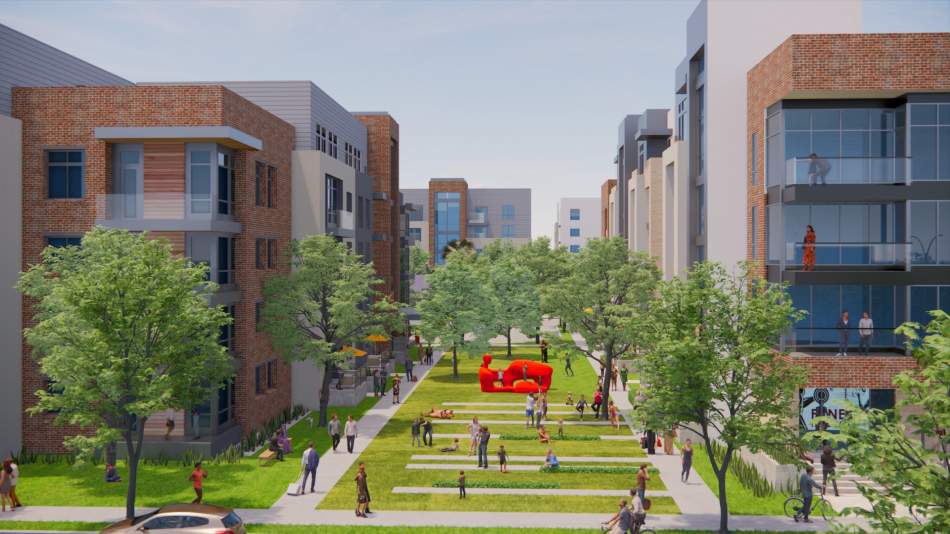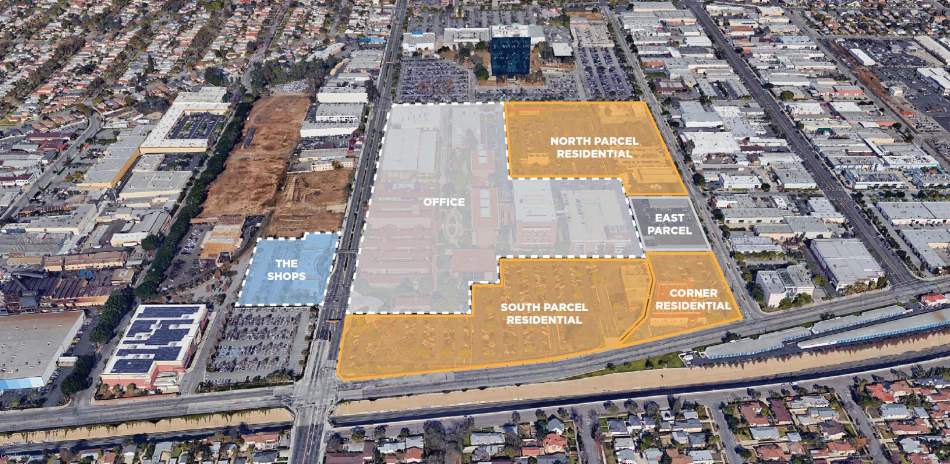Last October, the Alhambra City Council unanimously voted down a proposal from The Ratkovich Company to redevelop 20 acres of land surrounding the historic Alhambra office complex with apartments and condominiums. Now, the developer is turning to state housing legislation in an attempt to overturn that decision.
On January 20, the Ratkovich Company filed a lawsuit in Los Angeles Superior Court which aims to force the Alhambra City Council to approve The Villages at the Alhambra through the Housing Accountability Act (SB 167), a state law which limits the ability of jurisdictions to block developments that comply with local land use regulations. Under SB 167, a jurisdiction must show that an otherwise zoning-compliant project would have an impact on natural resources or public safety to justify rejection.
“The Los Angeles region is experiencing an acute housing crisis that has taken its toll on our economy, and especially those essential workers who cannot afford to live close to their jobs,” said Brian Saenger, President & CEO of The Ratkovich Company. “The Villages is a textbook example of exactly the type of urban in-fill living that people want and need."
In its lawsuit, Ratkovich argues that the proposed project complied with all zoning regulations and development standards for the property, and includes less housing than could legally be built on the property. The rejected project, which calls for redeveloping parking and commercial buildings with up to 790 residential units, had already been downsized from an original plan that have added more than 1,000 new homes to the Alhambra.
The project also comes at a time when the City of Alhambra is expected to accommodate the construction of more than 6,800 new homes through the year 2029, as the result of the Southern California Association of Government's updated Regional Housing Needs Assessment.
At the time of the project's Council hearing last year, the San Gabriel Valley Tribune reported that officials cited Ratkovich's lack of a full project labor agreement in voting to reject the development. The developer has an agreement with the Southwest Regional Council of Carpenters, according to a representative of the company.
Likewise, members of the Council questioned if soil toxins could harm future residents. A representative of the Los Angeles Regional Water Control Board, dismissed those concerns, stating that the remediation proposed during construction would account for pollutants.
The Tribune also reported that the Council argued that the Villages did not align with the city's October 2020 inclusionary housing ordinance, which requires that new projects within the city set aside 15 percent of units for rent by lower-income households. The Villages, which entered the entitlement process in 2017, calls for 84 apartments to be set aside for rent by low- and moderate-income households.
An e-mail to Alhambra officials requesting comment did not receive a response.
Separately, the developer - backed by the L.A. County Business Federation - has requested an investigation of the decision by the Housing Accountability Unit at the state Housing and Community Development Department.
While the bulk of Housing Accountability Act lawsuits have centered on projects in the Bay Area, there is at least one Los Angeles area developer which has used the legislation to its advantage. In 2020, a Superior Court Judge ordered the City of Los Angeles to rescind an Area Planning Commission’s denial of a proposed 577-unit apartment complex on Crenshaw Boulevard after concluding that the project had complied with zoning rules.









